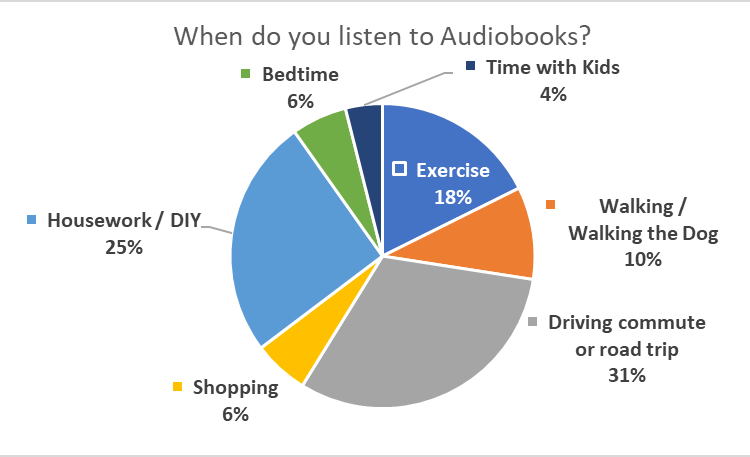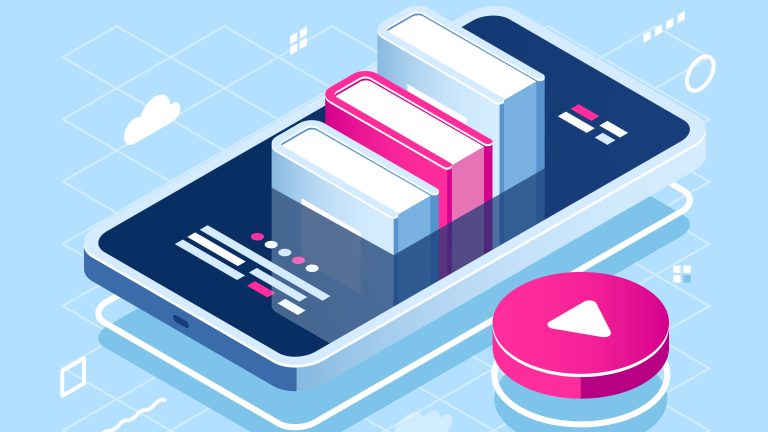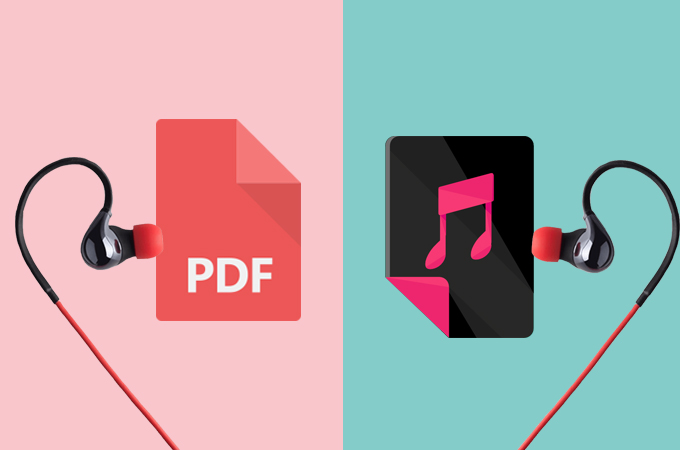Do Audiobooks Use A Lot Of Data?
If you’re a fan of audiobooks, you might be wondering, “Do audiobooks use a lot of data?” It’s a valid question, especially if you’re concerned about your data usage or have a limited data plan. In this article, we’ll delve into the world of audiobooks and explore just how much data they consume.
When it comes to data usage, audiobooks are relatively data-friendly. Unlike streaming movies or TV shows, which can consume a significant amount of data due to the visual content, audiobooks primarily rely on audio files. This means that the data required to download or stream an audiobook is significantly lower compared to video content. So, if you’re worried about exceeding your data limit while enjoying your favorite books, you can breathe a sigh of relief.
But how much data do audiobooks actually use? The precise amount can vary depending on various factors, such as the length and quality of the audiobook, as well as the platform or app you’re using to access it. However, on average, a standard audiobook can use anywhere from 24 to 64 kilobits per second (kbps) of data. This means that an hour of listening to an audiobook may consume around 11 to 30 megabytes (MB) of data. Of course, if you opt for higher quality or longer audiobooks, the data usage will be slightly higher. Nevertheless, compared to other forms of media, audiobooks remain a relatively data-friendly option. So, feel free to immerse yourself in captivating stories without worrying too much about your data consumption.

Do Audiobooks Use a Lot of Data?
Audiobooks have become increasingly popular in recent years, offering a convenient way to enjoy literature while on the go. However, one concern that many people have is whether audiobooks use a lot of data. In this article, we will explore the data usage of audiobooks and provide you with all the information you need to know.
Understanding Audiobook Data Usage
When it comes to data usage, it’s important to consider the different factors that can impact the amount of data consumed while listening to audiobooks. One of the main factors is the audio quality. Higher quality audio files tend to use more data compared to lower quality ones. This is because higher quality audio requires more data to accurately reproduce the sounds.
Additionally, the length of the audiobook and the amount of time you spend listening to it can also affect the data usage. Longer audiobooks naturally require more data to download and stream, while shorter ones use less. Similarly, the more time you spend listening to audiobooks, the more data you will consume.
Data Usage Comparison: Audiobooks vs. Music Streaming
To put things into perspective, let’s compare the data usage of audiobooks to that of music streaming. On average, a typical audiobook file has a size of around 100-150MB per hour of audio. This means that if you listen to a 10-hour audiobook, you can expect it to use approximately 1-1.5GB of data.
In comparison, music streaming services such as Spotify or Apple Music typically use around 1MB of data per minute of music playback. This means that listening to 10 hours of music would consume around 600MB of data. Therefore, in terms of data usage, audiobooks generally require more data compared to music streaming.
How to Minimize Data Usage
If you are concerned about data usage while listening to audiobooks, there are several steps you can take to minimize it. Firstly, you can choose to download the audiobook files instead of streaming them. By downloading the files, you can listen to them offline, eliminating the need for continuous data streaming.
Another option is to adjust the audio quality settings of your audiobook app. Most audiobook apps allow you to select the audio quality, with options ranging from low to high. Choosing a lower audio quality will reduce the amount of data used while still providing a satisfactory listening experience.
Furthermore, if you have access to a Wi-Fi connection, it is advisable to download the audiobooks while connected to Wi-Fi rather than using your cellular data. This way, you can avoid using up your mobile data plan and enjoy your audiobooks without any worries.
Benefits of Audiobooks
Despite the data usage considerations, audiobooks offer numerous benefits that make them worth considering. Firstly, they provide a convenient way to enjoy books, allowing you to listen while driving, exercising, or doing chores. Audiobooks also offer accessibility to individuals with visual impairments or reading difficulties.
Moreover, audiobooks can enhance your listening and comprehension skills, as well as improve your vocabulary and pronunciation. They also provide a unique experience, with professional narrators bringing the stories to life through their captivating performances.
In conclusion, while audiobooks do use data, the amount consumed can vary depending on factors such as audio quality, length of the audiobook, and listening time. By understanding these factors and taking steps to minimize data usage, you can enjoy the benefits of audiobooks without worrying about excessive data consumption. So go ahead, dive into the world of audiobooks and let your imagination soar.
Key Takeaways: Do Audiobooks Use a Lot of Data?
- Audiobooks generally use less data compared to streaming videos or music.
- On average, an hour of audiobook playback uses around 28-30 megabytes (MB) of data.
- Downloading audiobooks for offline listening can save data usage.
- Streaming audiobooks may use more data if the quality settings are higher.
- Using Wi-Fi instead of cellular data can help reduce data consumption while listening to audiobooks.
Frequently Asked Questions
How much data do audiobooks typically use?
When it comes to data usage, audiobooks are relatively lightweight compared to other forms of media streaming. On average, an hour of audiobook playback can use anywhere from 28 to 56 megabytes (MB) of data. However, the actual amount of data used can vary depending on factors such as audio quality and file format.
For example, if you’re listening to an audiobook in high quality or with a higher bitrate, it may use slightly more data compared to a lower quality version. Similarly, certain file formats, like MP3 or AAC, may have different data usage rates. It’s important to note that streaming an audiobook will typically use more data compared to downloading it for offline listening, as streaming requires a continuous internet connection.
Can I listen to audiobooks offline to save data?
Yes, you can definitely listen to audiobooks offline to save on data usage. Many popular audiobook platforms and apps allow you to download audiobooks for offline listening. By downloading the audiobook in advance, you can enjoy it without requiring an internet connection, thereby minimizing data usage.
Simply look for the option to download the audiobook within the app or platform you’re using. Once the audiobook is downloaded, you can listen to it anytime, anywhere without worrying about data consumption. This is especially useful if you’re planning to listen to audiobooks during long commutes or in areas with limited internet connectivity.
Does streaming or downloading audiobooks use more data?
Streaming audiobooks generally use more data compared to downloading them for offline listening. When you stream an audiobook, the data is continuously being transferred from the server to your device in real-time. This means that as you listen, data is being consumed.
On the other hand, when you download an audiobook for offline listening, the entire file is transferred to your device in one go. Once the download is complete, you don’t need to use any further data to listen to the audiobook. This makes downloading a more data-friendly option, especially if you have limited data or want to avoid excessive data charges.
Can I adjust the audio quality to reduce data usage?
Yes, most audiobook platforms and apps allow you to adjust the audio quality settings to reduce data usage. By choosing a lower quality or bitrate, you can effectively decrease the amount of data required to stream or download an audiobook.
Keep in mind that reducing the audio quality may result in a slight decrease in sound clarity or overall listening experience. However, many users find that the difference in quality is minimal and worth the trade-off for lower data consumption. Experiment with different quality settings to find the balance between data savings and audio enjoyment that suits you best.
Are there any other factors that can affect audiobook data usage?
While the audio quality and file format are the primary factors that influence audiobook data usage, there are a few other considerations to keep in mind. Firstly, if you frequently skip or rewind during playback, it may result in additional data usage as the audiobook needs to buffer and load the desired section.
Additionally, background processes or apps running on your device may consume some data while listening to audiobooks. To minimize this, it’s helpful to close unnecessary apps and ensure your device is not performing any data-intensive tasks in the background while listening to audiobooks.
Reading vs Listening to Audiobooks (What science says about it)
Final Summary: Do Audiobooks Use a Lot of Data?
After exploring the question of whether audiobooks use a lot of data, it is clear that the data usage varies depending on the quality of the audio file and the length of the book. Audiobooks generally consume less data compared to streaming videos or music. Opting for lower quality settings can significantly reduce data usage without compromising the listening experience. Additionally, downloading audiobooks for offline listening can be a great way to save on data usage while enjoying your favorite books on the go.
In conclusion, while audiobooks do use some data, they are generally more data-friendly compared to other forms of media consumption. By adjusting the quality settings and downloading the books for offline listening, you can further minimize data usage. So, go ahead and indulge in the world of audiobooks without worrying too much about data consumption. Happy listening!






